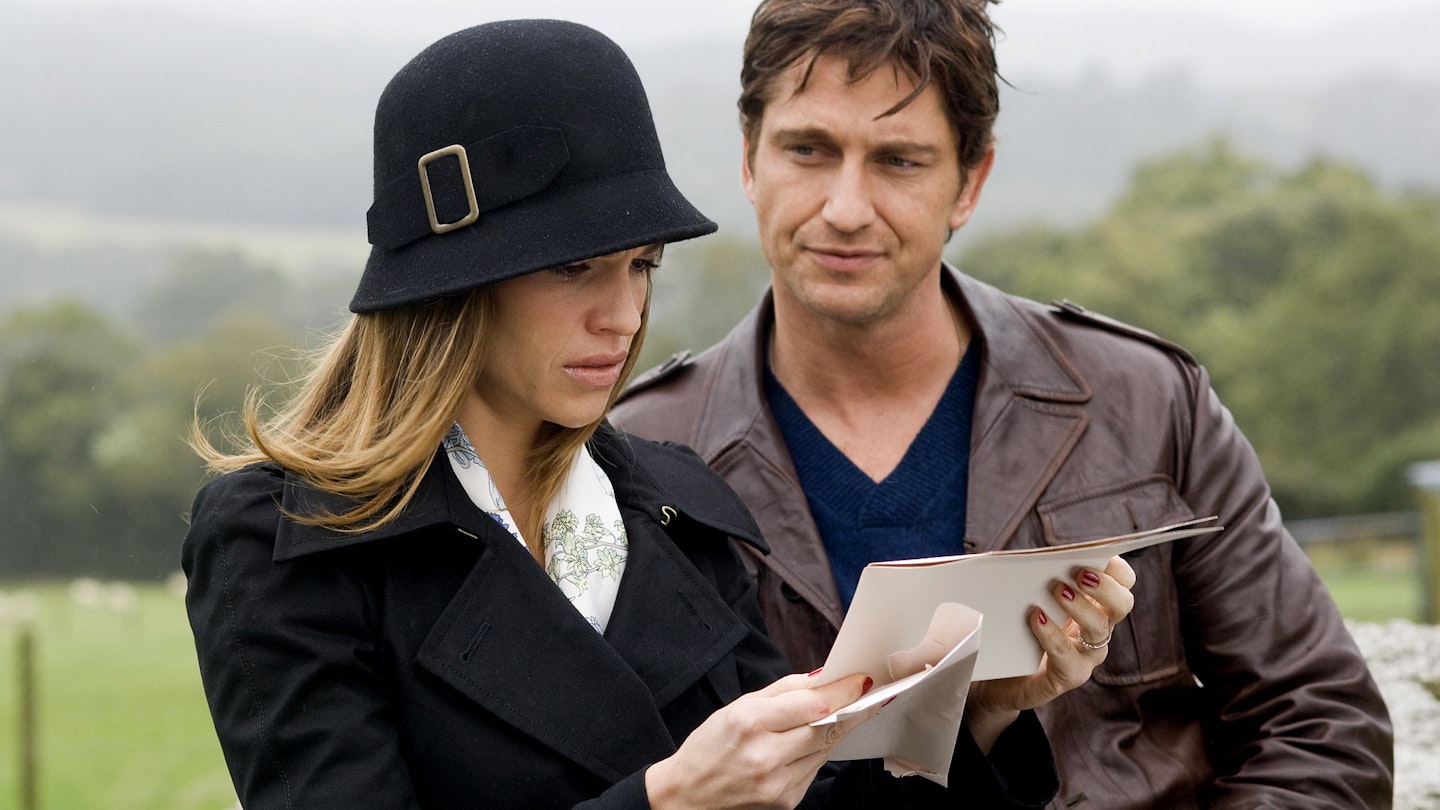This film opens on a bickering couple. She’s Holly (Hilary Swank); irritable, passive-aggressive and buttoned-up even when she strips off to get into bed. He’s Gerry (Gerard Butler); charming and flirtatious even when he loses his temper. Many grievances are aired - they married young, they’re poor, she has a father complex and he’s irresponsible. Strangely unremarked goes Gerry’s most grievous fault, an Irish accent straight from Sean Connery’s Darby O’Gill school. It’s one of the worst scenes of the year.
Perversely, things look up at Gerry’s funeral. Holly is bereft. Her family and friends - chief among them Lisa Kudrow and Gina Gershon as her best mates - busily comfort her, but find time to introduce humour into a film sorely in need of it.
What follows veers wildly in tone. There are moments of genuine pathos, as the double Oscar-winning Swank dons her widow’s weeds - or at least disreputable PJs - and slowly learns to stop wallowing. Supported by mum Kathy Bates and with the steady flirting of new bloke Harry Connick Jr., Holly finds herself again (it’s that sort of film) through the medium of letters from her late loved one and, er, karaoke.
But every time the film starts to engage with the trauma of losing a husband, LaGravenese cuts to a nauseatingly uplifting song, or a montage of his gorgeous heroine looking soulful. Our once cash-strapped heroine, seemingly unfettered by funeral expenses or medical bills, gets back into her designer togs and heads on a journey of self-discovery to Ireland, wherein your average Joe - well, Billy (Jeffrey Dean Morgan) - plays guitar in a pub, works on
a farm and part-times for the coast guard (well, at least he doesn’t play the fiddle).
Ultimately, the whole thing is just incomprehensible. If you’re moving the action from the book’s Dublin to the film’s New York anyway, why not accommodate your leading man and make the whole thing Scottish? The scenery’s just as nice. And why give us two how-they-met scenes when both are largely irrelevant? There’s a decent and very moving film to be had from this subject matter, but it’s a small indie, not this mixed-up attempt at a rom-com.



